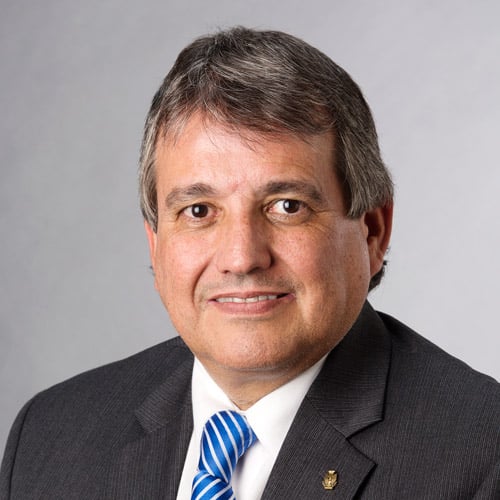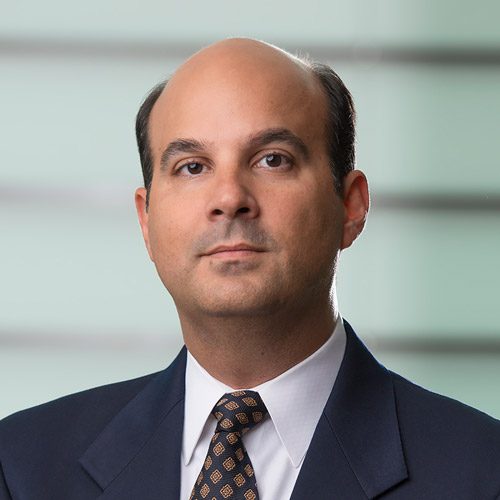Pedro Correa feels that his day-to-day responsibilities at BHP Billiton have a direct impact on the company and, by virtue, direct impact on the world. As vice president of supply for the company’s petroleum business, Correa leads the end-to-end procurement process and manages supplier commercial relationships and performance of all goods and services for the petroleum business. Basically, his responsibilities span the globe.
BHP Billiton is the largest diversified resource company in the world with major commodities including iron ore, metallurgical coal, copper, and oil and gas. Its Houston, Texas-based petroleum business is composed of oil and gas operations, with core production operations located in the Gulf of Mexico, Australia, and Trinidad and Tobago.
As much pressure as it is, Correa understands that his role is part of something bigger. He brings a truly global outlook to a company looking to break new ground in the way a multinational company works.
“We have been on a journey since the beginning of 2016 to globalize and simplify our operating model,” Correa says. The company’s focus on safety, volume, and cost needs to be supported by functions within reach in any region that BHP Billiton operates.
The end goal, he explains, is to accelerate best-practice sharing, enable future growth, and fast-track the adoption of new technologies to drive safety and productivity. “We’d been managing petroleum, iron ore, copper, and metallurgical coal separately. Now, there is a true opportunity to standardize, replicate and eliminate duplication, to work truly in a global mindset, and to benefit from each other in a collaborative diverse environment.”
Correa has been part of that transition, working to eliminate repetition in procurement processes and to identify best practices more quickly so he and his team can employ them right away. The company is also taking culturally decisive steps to be a more inclusive, diverse organization—to remove unconscious bias and to give everyone equal access to every opportunity. Welcoming ideas and feedback from anywhere within the company helps maximize performance.
According to Correa, BHP Billiton knows that investing in diversity and inclusion not only is the right thing to do, but will also benefit the company. “At our company, we aim to be an organization which fosters an environment where individuals can be themselves, feel valued, and make meaningful contributions at work,” Correa confirms.
One of BHP Billiton’s greatest challenges is operating in one of the most volatile commodity markets in decades. Oil prices are currently half what they were two years ago, making planning difficult and putting pressure on Correa and his team to continuously find savings in the form of a more streamlined global operation.
That hasn’t distracted Correa from his vision for the future. “It’s not about what other companies have done,” he says. “It’s about being open to what will come and taking the lead—making the changes first. To foresee the unforeseen is difficult, but an adaptive strategy allows a company to outperform in a world that is volatile, complex, and uncertain.”
Correa says that moving forward, the company will be ever more mindful of the countries and communities where it does business. This is where Correa’s experience becomes a big asset. A native of Chile, he formerly served as head of the agricultural office at the Chilean embassy in Japan. He then earned his law degree at Temple University in Pennsylvania before returning to Santiago to practice.
“Those experiences allowed me to understand cultural differences,” he says. “When you’re working in so many different places, you can extract valuable lessons from each culture. You learn what makes them distinctive and great and blend this knowledge within your own thoughts and behaviors. This practice allows you to better appreciate and understand different perspectives.”
After he started with BHP Billiton in 2005, Correa rose through the ranks. He began as a corporate affairs manager at Minera Escondida, a northern Chile copper mine operated by BHP Billiton. And after several moves up the ladder in Chile, he relocated to the petroleum division’s Houston headquarters in 2014.
Correa admits the cultural adjustment was more challenging than anticipated, even after completing his post-graduate law degree in the United States.
“There are a lot of cultural differences in the way people do business,” he says. “It’s not better or worse, just different. The challenge was to really be able to adapt to those differences without jeopardizing the essence of who I am.”
It ended up being a first-hand lesson in international relations.
“I learned that you have to bring what is novel about you and your background to the table while being respectful of differences,” he says. “You learn from those differences—something I feel is becoming more important as the world is getting smaller.”
Correa’s work at BHP Billiton is about more than just procuring services and supplies for the petroleum division. He is also integral to the company’s fundamental shift toward global stewardship. How the work affects the land as well as the local communities and suppliers matters, and Correa says he wants everyone who works for him to understand that.
“As a global company, we should have a better understanding of how the world does business, with an underpinning commitment to a single set of core values,” he says. “The values—we refer to them as ‘our charter’—are applied to our work no matter where we operate. We commit to meeting any local obligations and if our charter sets a higher standard, we work to that standard.”
“As an example, commercial professionals value our position of transparency of markets, open competition, and free trade,” he continues. “We do not distinguish in the way that we apply code-of-business conduct for our employees or third parties. Everywhere in the world, we apply those values regardless of local laws and customs.”
Helping the company achieve its goals while maintaining a fierce loyalty to a wide range of values is challenging, but it’s work he says he is proud of. As a husband and father of five children, Correa says he understands that what he and BHP Billiton do today can influence their tomorrow.

